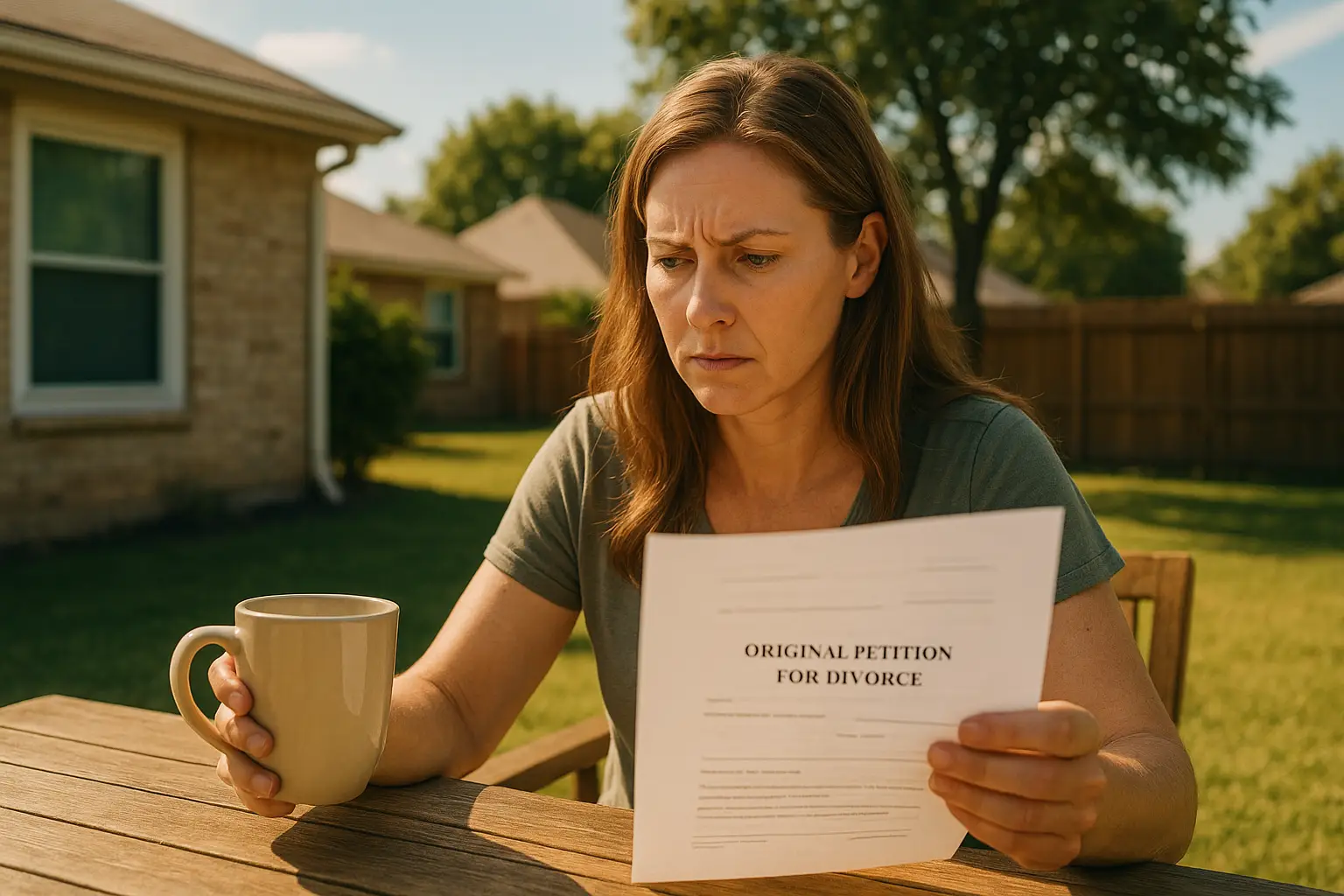Understanding Divorce in Texas: A Comprehensive Guide
This guide aims to provide a thorough understanding of the divorce process in Texas, including legal requirements, emotional considerations, and potential outcomes. By familiarizing yourself with these aspects, you can navigate the complexities of divorce with greater confidence and clarity.
Divorce in Texas can be a multifaceted process, often involving various legal and emotional challenges. Understanding the state's specific laws, such as residency requirements and grounds for divorce, is crucial. This guide will walk you through each step, ensuring you are well-informed about your rights and options throughout the divorce proceedings.
Common Myths About Divorce in Texas Debunked
Many misconceptions surround the divorce process in Texas, which can lead to confusion and misinformation. This section aims to clarify these myths, helping individuals make informed decisions based on facts rather than assumptions.
For instance, one common myth is that a spouse must prove fault to obtain a divorce in Texas. In reality, Texas is a no-fault divorce state, meaning that individuals can file for divorce without needing to assign blame. Understanding these myths can empower individuals to approach their divorce with realistic expectations.
Key Considerations When Choosing a Divorce Attorney
Selecting the right divorce attorney is a critical step in ensuring a favorable outcome in your case. This section will outline essential factors to consider, such as experience, specialization in family law, and communication style.
An experienced attorney can provide invaluable guidance through the legal process, helping to protect your rights and interests. It's important to schedule consultations with potential attorneys to discuss your case and assess their approach, ensuring you find a legal partner who aligns with your needs and goals.
Emotional Support Resources During Divorce
Divorce can be an emotionally taxing experience, making it essential to seek support during this challenging time. This section will highlight various resources available, including counseling services, support groups, and online forums.
Accessing emotional support can significantly ease the transition through divorce. Many individuals find solace in connecting with others who have experienced similar situations, while professional counseling can provide coping strategies and tools for managing stress and anxiety associated with divorce.
Understanding Divorce in Texas: A Comprehensive Guide
This guide aims to provide a thorough understanding of the divorce process in Texas, including legal requirements, emotional considerations, and potential outcomes. By familiarizing yourself with these aspects, you can navigate the complexities of divorce with greater confidence and clarity.
Divorce in Texas can be a multifaceted process, often involving various legal and emotional challenges. Understanding the state's specific laws, such as residency requirements and grounds for divorce, is crucial. This guide will walk you through each step, ensuring you are well-informed about your rights and options throughout the divorce proceedings.
Common Myths About Divorce in Texas Debunked
Many misconceptions surround the divorce process in Texas, which can lead to confusion and misinformation. This section aims to clarify these myths, helping individuals make informed decisions based on facts rather than assumptions.
For instance, one common myth is that a spouse must prove fault to obtain a divorce in Texas. In reality, Texas is a no-fault divorce state, meaning that individuals can file for divorce without needing to assign blame. Understanding these myths can empower individuals to approach their divorce with realistic expectations.
Key Considerations When Choosing a Divorce Attorney
Selecting the right divorce attorney is a critical step in ensuring a favorable outcome in your case. This section will outline essential factors to consider, such as experience, specialization in family law, and communication style.
An experienced attorney can provide invaluable guidance through the legal process, helping to protect your rights and interests. It's important to schedule consultations with potential attorneys to discuss your case and assess their approach, ensuring you find a legal partner who aligns with your needs and goals.
Emotional Support Resources During Divorce
Divorce can be an emotionally taxing experience, making it essential to seek support during this challenging time. This section will highlight various resources available, including counseling services, support groups, and online forums.
Accessing emotional support can significantly ease the transition through divorce. Many individuals find solace in connecting with others who have experienced similar situations, while professional counseling can provide coping strategies and tools for managing stress and anxiety associated with divorce.











